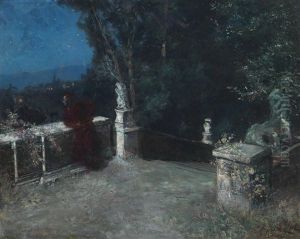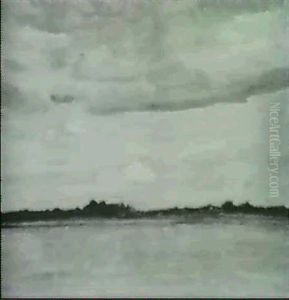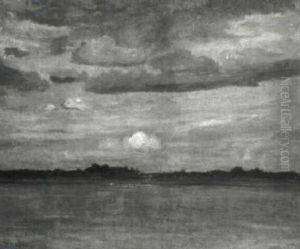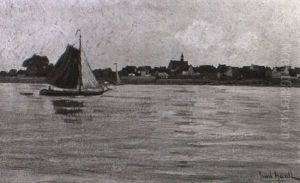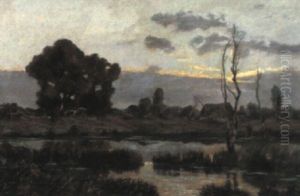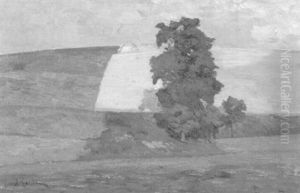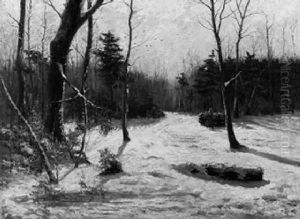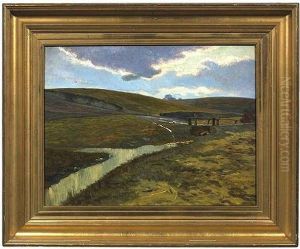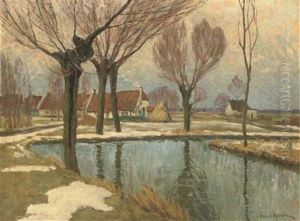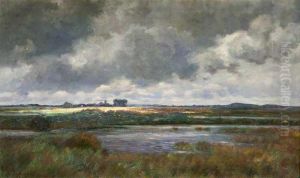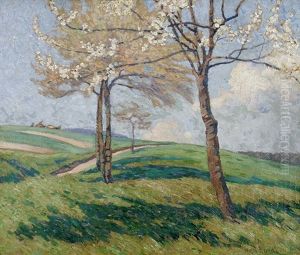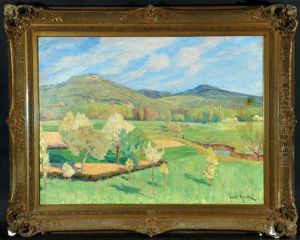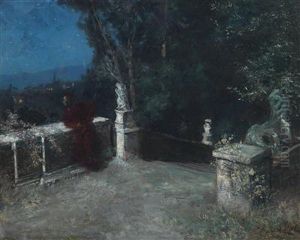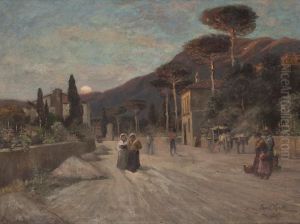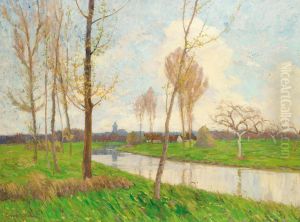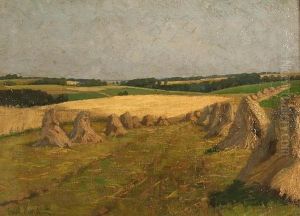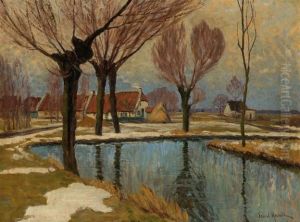Ernst Hardt Paintings
Ernst Hardt was a German writer and dramatist born on May 9, 1876, in Düsseldorf, Germany. He was an influential figure in the early 20th century, particularly known for his plays and his role as a cultural administrator. Hardt's early education and formative years contributed to his development as a writer, though information on his early life and education is not as extensively documented as that of some of his contemporaries.
Hardt began his career as a poet and playwright in a period marked by significant changes in German literature, with the rise of Naturalism and subsequent movements. His work was influenced by Symbolism and, to some extent, by the Jugendstil movement, which was the German counterpart of Art Nouveau. One of his most notable works is the play 'Tantris der Narr' (Tantris the Jester), written in 1907, which showed his leaning towards mythological themes and the reinterpretation of old legends. This play was inspired by the story of Tristan and Isolde and showcased his lyrical and evocative language.
Beyond his literary endeavors, Ernst Hardt was instrumental in the cultural scene through his administrative roles. From 1913 to 1920, he served as the first director of the newly founded Künstlertheater in Munich, which became an important venue for contemporary and experimental theatre. His tenure there was marked by his efforts to promote modernist literature and to provide a platform for new and challenging works.
Following his time in Munich, Hardt continued to be engaged in the literary and cultural life of Germany. He was appointed as the Intendant of the Deutsches Nationaltheater in Weimar, where he worked until 1923. His directorial choices and advocacy for the arts were part of the larger cultural movements of the time, reflecting the struggles and aspirations of the Weimar Republic.
Hardt's contributions to literature and the arts were recognized in his day, but as with many figures of the period, his legacy has been somewhat overshadowed by the tumultuous history of Germany in the first half of the 20th century, including the rise of National Socialism and the Second World War. Ernst Hardt passed away on January 3, 1947, in Weimar, leaving behind a body of work that, while not as widely known today, played a part in shaping the cultural landscape of his time.
